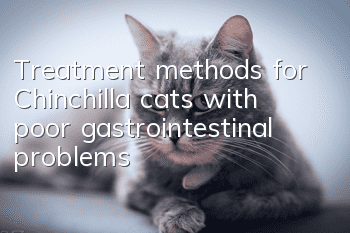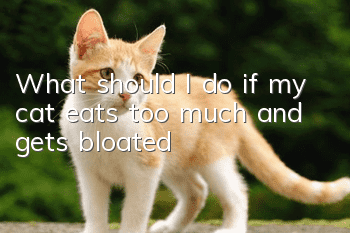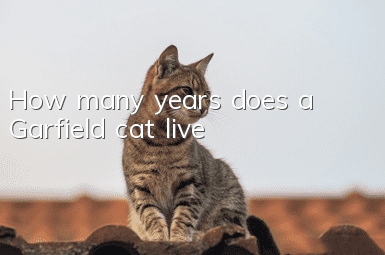Treatment methods for Chinchilla cats with poor gastrointestinal problems

What should I do if a Chinchilla cat has a bad gastrointestinal problem? If the cat just eats and does not gain weight, then it is necessary to consider whether there is a problem with the cat’s gastrointestinal problem? Let’s follow the editor to find out.
Cats with poor gastrointestinal problems not only have poor absorption, but are also prone to vomiting and diarrhea. Other symptoms are that the food intake is not much different from cats of the same age, but the growth is slow, the coat color is usually dry, and the weight is lighter than that of a normal cat. It belongs to the type that eats a lot but does not gain weight. In severe cases, anemia and low blood cholesterol levels may occur. Due to poor gastrointestinal function, cats have poor absorption, and nutrients cannot be absorbed in time, which will cause the above phenomena. If you find that your cat always has diarrhea, and it is not due to eating unclean food, it is usually caused by poor intestinal function.
Cats must first pay great attention to their diet structure. Controlling food intake is the most important. Some owners think that since they have poor absorption, they should make up for it by quantity, but this approach is quite unsuitable. Because cats cannot digest well because nutrients cannot be absorbed, even if they eat too much, they cannot be absorbed, which in turn increases the burden on their gastrointestinal tract. Therefore, when treating this kind of cat, you need to feed it regularly and quantitatively, and try to develop good eating habits to maintain the function of the stomach.
Secondly, diet structure is also a very important part. Cats with poor intestinal tracts are usually thin, so many people feel that they should be given a supplement, so all kinds of big fish and meat are used. In fact, this does not have much benefit. Cats' intestines and stomach are the same as those of humans. If they don't absorb well, they will eat some greasy and watery things. The absorption of food in the intestines will increase the burden. Eating too many cans will make you more prone to diarrhea. Therefore, canned cat food is usually given at noon and evening, and only cat food is given the rest of the time. As for the choice of cat food, it is best to choose cat food with small particles, easy to digest, and good nutrition.
For cats with poor gastrointestinal problems, it is best not to change food frequently. This will cause the cat’s gastrointestinal discomfort and increase the burden on the intestines. In addition, you should also pay more attention to drinking water and try not to mix it with tap water and mineral water. Relatively speaking, boiled water contains the most minerals, and it also has certain benefits for the cat's body. After boiling the water, let it cool down and then give it to the cat to drink. Always keep the cat with clean water to drink.
In addition to the normal diet, cats can also be given some nutritional supplements, such as nutritional paste to condition the intestines, but the amount must be appropriate. This is only for supplementary adjustment and cannot be eaten as a meal. There are also some products that can be used to regulate the gastrointestinal tract. Enzyme powder is a good choice and has certain benefits.
If your cat develops diarrhea or vomiting once it is not used to eating, you can feed it some drugs such as lactase to help regulate it. Generally it doesn’t take too longA little adjustment for a period of time will lead to some improvement.
- Tips for training cats at a moment's notice, cat training methods!
- How to tell if cat vaccines are ineffective?
- What to do if a male cat is in heat?
- Will cats urinate and defecate randomly at home?
- What should a female cat pay attention to on the day after giving birth?
- What should I do if my cat only eats snacks but not cat food?
- What is the difference between feline nasal congestion and feline herpes virus? How to prevent and treat it!
- Can cats eat mixed cat food?
- Why do you say you don’t regret owning an American shorthair cat?
- Why do cats lift their backs when we pet them?



